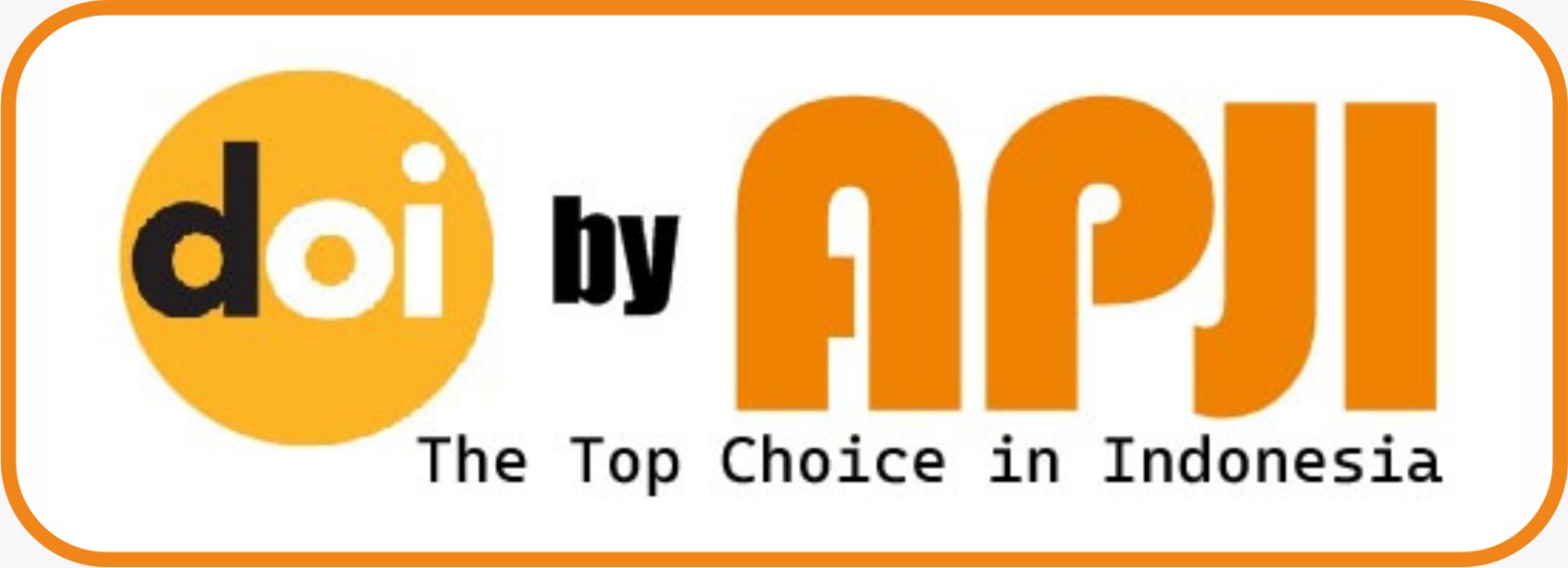Detection of Land Cover Change in Nickel Mining Areas, in Weda Tengah Sub-district, Halmahera Island, Indonesia using Planet-Scope Satellite Images
DOI:
https://doi.org/10.69930/fsst.v2i1.379Keywords:
Land cover, nickel mining, PlanetScope, WedaAbstract
Land cover change is a global phenomenon triggered by human activities, including mining, which has significant impacts on the environment and ecosystems. In Indonesia, particularly on Halmahera Island, nickel mining has become one of the main economic sectors, but this activity often results in serious environmental degradation. The data used in this study is PlanetScope satellite image data for 2016, 2020 and 2024 which has a 3-meter spatial resolution. The image data was then interpreted and digitized to obtain land cover classes consisting of settlements, farming areas, vegetation and water bodies. The validation results of land cover in 2016, 2020, and 2024 obtained accuracy values of 92%, 90%, and 95%, respectively. In 2016, settlements had an area of 222.79 ha, mining area of 364.98 ha, vegetation of 52,938.88 ha, water body of 212.88 ha. In 2020, settlements were 343.92 ha, mining areas were 1,329.18 ha, vegetation was 51,853.55 ha, water bodies were 212.88 ha. In 2024, settlements are 563.92 ha, mining area is 4,498.32 ha, vegetation is 48,464.41 ha and water bodies are 212.88 ha. The mining area certainly continues to increase in area every year.
References
B, S., Kurniawan, A., & Arif, N. (2024). Deforestation Trends and Drivers in Central Halmahera Regency. Jurnal Wasian, 11(1), 15–19. https://doi.org/10.62142/t6n6m231
Basheer, S., Wang, X., Nawaz, R. A., Pang, T., Adekanmbi, T., & Mahmood, M. Q. (2024). A comparative analysis of PlanetScope 4-band and 8-band imageries for land use land cover classification. Geomatica, 76(2), 100023. https://doi.org/10.1016/j.geomat.2024.100023
Chang, X., Zhang, F., Cong, K., & Liu, X. (2021). Scenario simulation of land use and land cover change in mining area. Scientific Reports, 11(1), 12910. https://doi.org/10.1038/s41598-021-92299-5
Fikadu, G., & Olika, G. (2023). Impact of land use land cover change using remote sensing with integration of socio-economic data on Rural Livelihoods in the Nashe watershed, Ethiopia. Heliyon, 9(3), e13746. https://doi.org/10.1016/j.heliyon.2023.e13746
Gbedzi, D. D., Ofosu, E. A., Mortey, E. M., Obiri-Yeboah, A., Nyantakyi, E. K., Siabi, E. K., Abdallah, F., Domfeh, M. K., & Amankwah-Minkah, A. (2022). Impact of mining on land use land cover change and water quality in the Asutifi North District of Ghana, West Africa. Environmental Challenges, 6, 100441. https://doi.org/10.1016/j.envc.2022.100441
Heinrich Rakuasa. (2025). Classification of Sentinel-2A Satellite Image for Ternate City land cover using Random Forest Classification in SAGA GIS Software. DNS – DIGITAL NEXUS SYSTEMATIC JOURNA, 1(1), 34–36. https://doi.org/http://dx.doi.org/10.26753/dns.v1i1.1554
Madasa, A., Orimoloye, I. R., & Ololade, O. O. (2021). Application of geospatial indices for mapping land cover/use change detection in a mining area. Journal of African Earth Sciences, 175, 104108. https://doi.org/10.1016/j.jafrearsci.2021.104108
Nasution, M. J., Tugiyono, Bakri, S., Setiawan, A., Murhadi, Wulandari, C., & Wahono, E. P. (2024). The Impact of Increasing Nickel Production on Forest and Environment in Indonesia: A Review. Jurnal Sylva Lestari, 12(3), 549–579. https://doi.org/10.23960/jsl.v12i3.847
Pacheco, A. da P., Nascimento, J. A. S. do, Ruiz-Armenteros, A. M., da Silva Junior, U. J., Junior, J. A. da S., de Oliveira, L. M. M., Melo dos Santos, S., Filho, F. D. R., & Pessoa Mello Galdino, C. A. (2025). Land Cover Transformations in Mining-Influenced Areas Using PlanetScope Imagery, Spectral Indices, and Machine Learning: A Case Study in the Hinterlands de Pernambuco, Brazil. Land, 14(2), 325. https://doi.org/10.3390/land14020325
Rakuasa, H., Sihasale, D. A., Somae, G., & Latue, P. C. (2023). Prediction of Land Cover Model for Central Ambon City in 2041 Using the Cellular Automata Markov Chains Method. Jurnal Geosains Dan Remote Sensing, 4(1), 1–10. https://doi.org/10.23960/jgrs.2023.v4i1.85
Salakory, M., Rakuasa, H. (2022). Modeling of Cellular Automata Markov Chain for predicting the carrying capacity of Ambon City. Jurnal Pengelolaan Sumberdaya Alam Dan Lingkungan (JPSL), 12(2), 372–387. https://doi.org/https://doi.org/10.29244/jpsl.12.2.372-387
Senamaw, A., Gashaw, T., & Ehsan, M. A. (2022). Impacts of Land-Use/Land-Cover Changes on Water-Borne Soil Erosion Using Geospatial Technologies and RUSLE Model over Chimbel Watershed of Upper Blue Nile Basin in Ethiopia. Earth Systems and Environment, 6(2), 483–497. https://doi.org/10.1007/s41748-021-00259-w
Swetnam, R. D., Fisher, B., Mbilinyi, B. P., Munishi, P. K. T., Willcock, S., Ricketts, T., Mwakalila, S., Balmford, A., Burgess, N. D., Marshall, A. R., & Lewis, S. L. (2011). Mapping socio-economic scenarios of land cover change: A GIS method to enable ecosystem service modelling. Journal of Environmental Management, 92(3), 563–574. https://doi.org/10.1016/j.jenvman.2010.09.007
Szostak, M., Likus-Cieślik, J., & Pietrzykowski, M. (2021). PlanetScope Imageries and LiDAR Point Clouds Processing for Automation Land Cover Mapping and Vegetation Assessment of a Reclaimed Sulfur Mine. Remote Sensing, 13(14), 2717. https://doi.org/10.3390/rs13142717
Trisurat, Y., Shirakawa, H., & Johnston, J. M. (2019). Land-Use/Land-Cover Change from Socio-Economic Drivers and Their Impact on Biodiversity in Nan Province, Thailand. Sustainability, 11(3), 649. https://doi.org/10.3390/su11030649
Yu, M., Wang, Y., & Umair, M. (2024). Minor mining, major influence: Economic implications and policy challenges of artisanal gold mining. Resources Policy, 91, 104886. https://doi.org/10.1016/j.resourpol.2024.104886



















